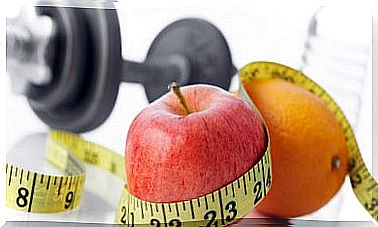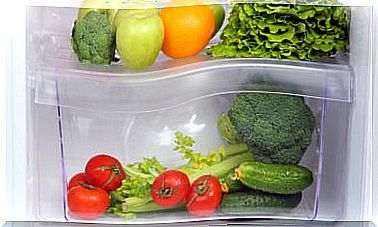How To Reduce Salt Intake While Still Eating Tasty
High blood pressure and fluid retention are two of the common causes for which reduction in salt intake is recommended. However, many others have thought about decreasing it, but they do not do so because they do not want to miss out on a tasty meal.
In this article we will give you some guidelines to properly choose salt. Discover the healthy alternatives that will allow you to reduce sodium consumption, without giving up the taste of a good meal.
Remember that you should not make significant changes to your diet, without first consulting your doctor.
The healthiest salt
There are mainly two types of salt. I ike have white sugar and brown sugar, also there is a refined salt and an integral or natural salt.
Many wonder if there is a difference between these two great types of salt and in this regard there are two positions. There is a belief that refined salt is harmful to health, while whole or natural salt does not cause negative effects.
However, the World Health Organization has pointed out that from a health point of view, both types of salt are the same. The same raises the prestigious Mayo Clinic. This means that the differences between one type of salt and the other would only be of a gastronomic nature.
Types of whole salt
The best known is sea salt, but you can also find others:
- Guerande gray salt.
- Himalayan pink salt.
- Hawaiian red salt.
- Hawaiian black salt.
- Celtic salt.
- Persian blue salt.
These salts have different shades, due to the difference in the characteristics of the sites from which they are extracted . For example, the black salt of Hawaii is extracted from deposits located in volcanic areas and that is why it is black. Sometimes herbs or other minerals are added to them and this also causes them to change color.
Alternatives to reduce salt intake
1. The myth of seawater
Seawater is sold in some natural products stores and supermarkets. There is a belief that it is healthy and that it can be consumed without problem, but it is not.
First of all, not all products that are marketed as “sea water” comply with sanitary standards, especially in some countries where they are very lax.
Second, seawater has a high concentration of sodium: 35 grams per liter. This is more than the body can support and instead of representing a reduction in salt intake, it represents an increase.
There is no scientific evidence that seawater has health benefits.
2. Spices and aromatic plants
Spices and aromatic plants flavor our dishes and allow us to add less salt, without sacrificing taste. Some of the most recommended are:
- Oregano.
- Basil.
- Pepper.
- Cumin.
- Curry.
- Peppers.
- Parsley.

Some of these spices also have healing properties . For more information, you can consult this document, published in the UDO Agrícola Scientific Journal.
Keep in mind that it is not easy to get rid of salt. At first, food may seem less palatable; however, as the days go by, the new flavors will be more intensely perceived.
Remember that a taste for salt is acquired, as an article from the Texas Heart Institute recalls .
3. Garlic
Garlic is a food with a strong flavor, very suitable for cooking. Some people don’t like it because it gives them bad breath. However, if it is used in small amounts to flavor foods, it helps to enhance the flavor of dishes.
- You can also add a few cloves of garlic to a bottle of olive oil.
- Then let it marinate for a couple of weeks and use it in all kinds of dishes.
A study published in the Cuban Journal of Physical Medicine and Rehabilitation indicates that the consumption of garlic is not recommended in pregnant or lactating women, and when there are coagulation disorders, hyperthyroidism and gastrointestinal ulcer. It could also cause adverse reactions if combined with some medications for hypertension, so it is recommended to consult with your doctor.

4. Lemon
Lemon is very suitable for dressing salads and meat and fish dishes. Not only does it enhance the flavor of food, but it is also believed to help digest fats better and assimilate nutrients better. A study published in the journal University, Science and Society indicates that lemon has digestive properties, but does not specify the same. No other scientific studies were found to support these properties.
In cases of anemia, foods that contain ascorbic acid, such as lemon, help to better absorb iron from food. A study published in the Cuban Journal of Comprehensive General Medicine corroborates this.
5. Vinegar
Vinegar is another food that enhances the taste of food and also helps digest it. However, we must always use it in small amounts, especially if we suffer from heartburn or gastric ulcers, as it could cause more burning. A document published by Dr. Alberto Méndez, a specialist in family medicine, corroborates this information, clarifying that the benefits for digestion are very modest.
The apple cider vinegar and umeboshi vinegar bring more flavor, provided they are of good quality. The best are the ones that are naturally fermented.
Do not forget…
It is always necessary to consult with the doctor before suppressing or adding foods to the diet. In some specific circumstances, these changes can lead to health problems.
Images courtesy of julajp, srqpix, shutterbean, and Food in Jars









